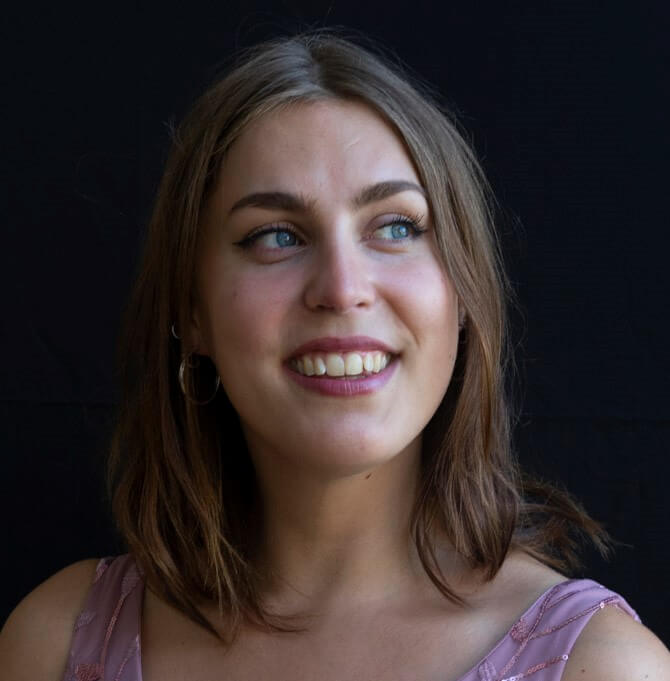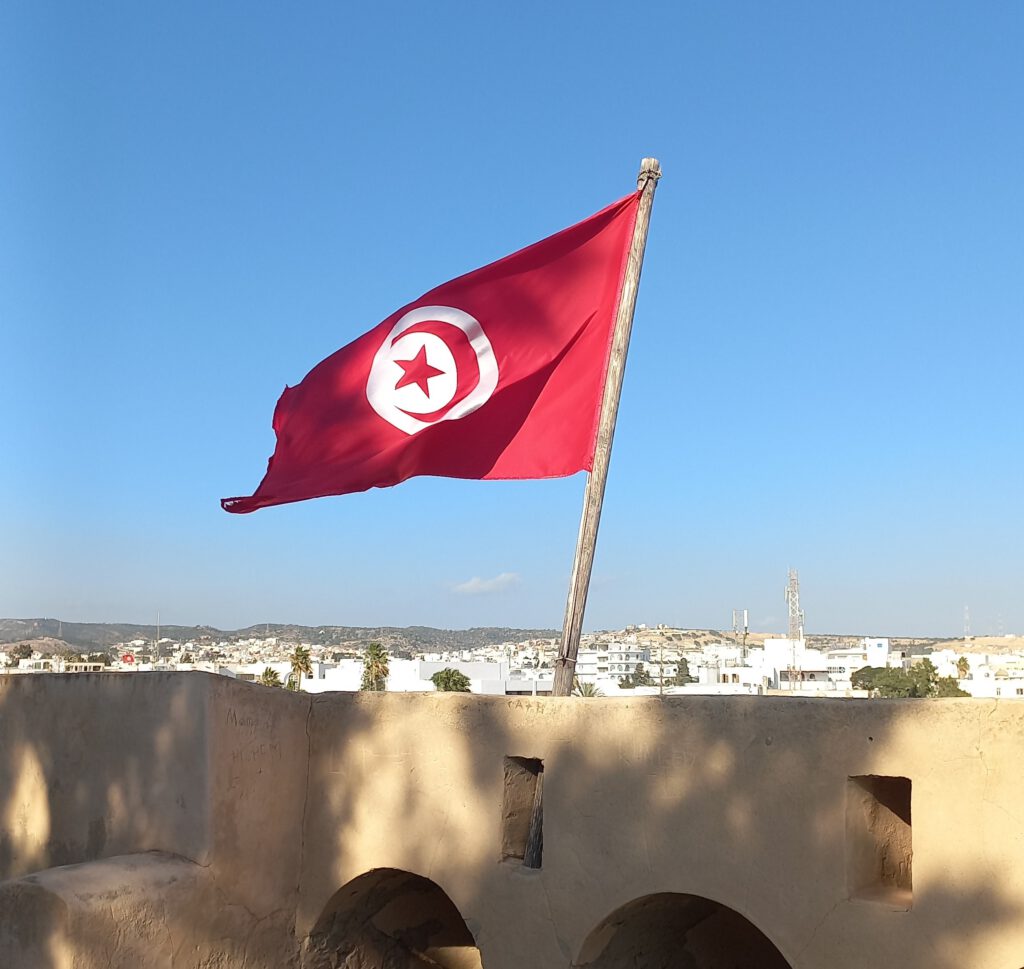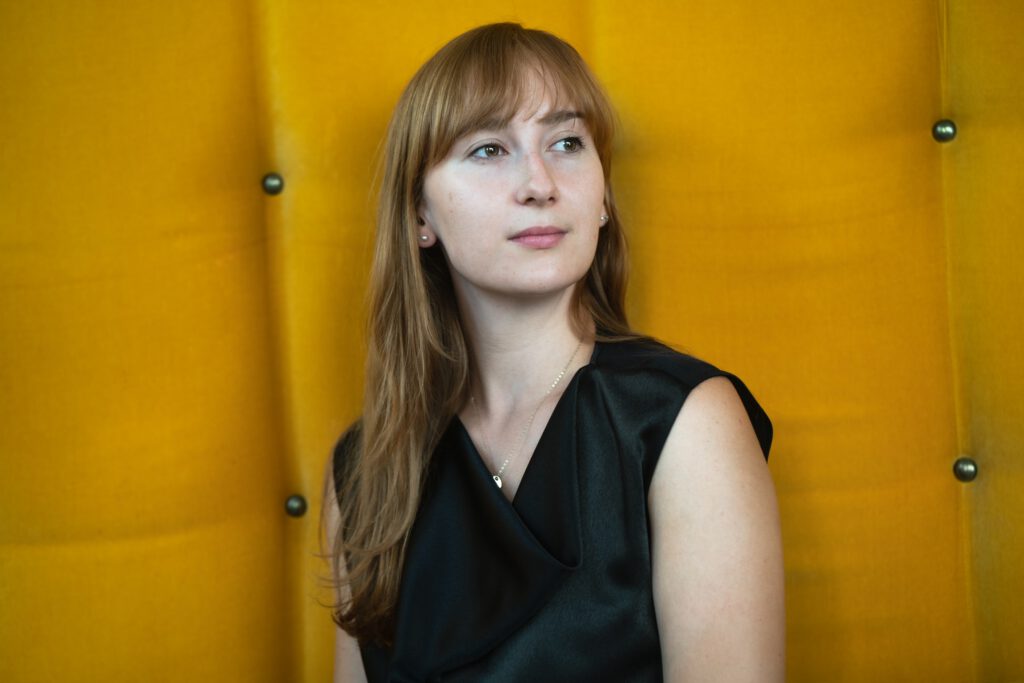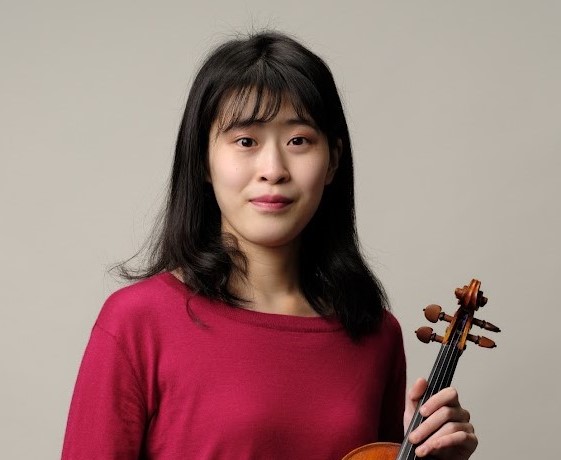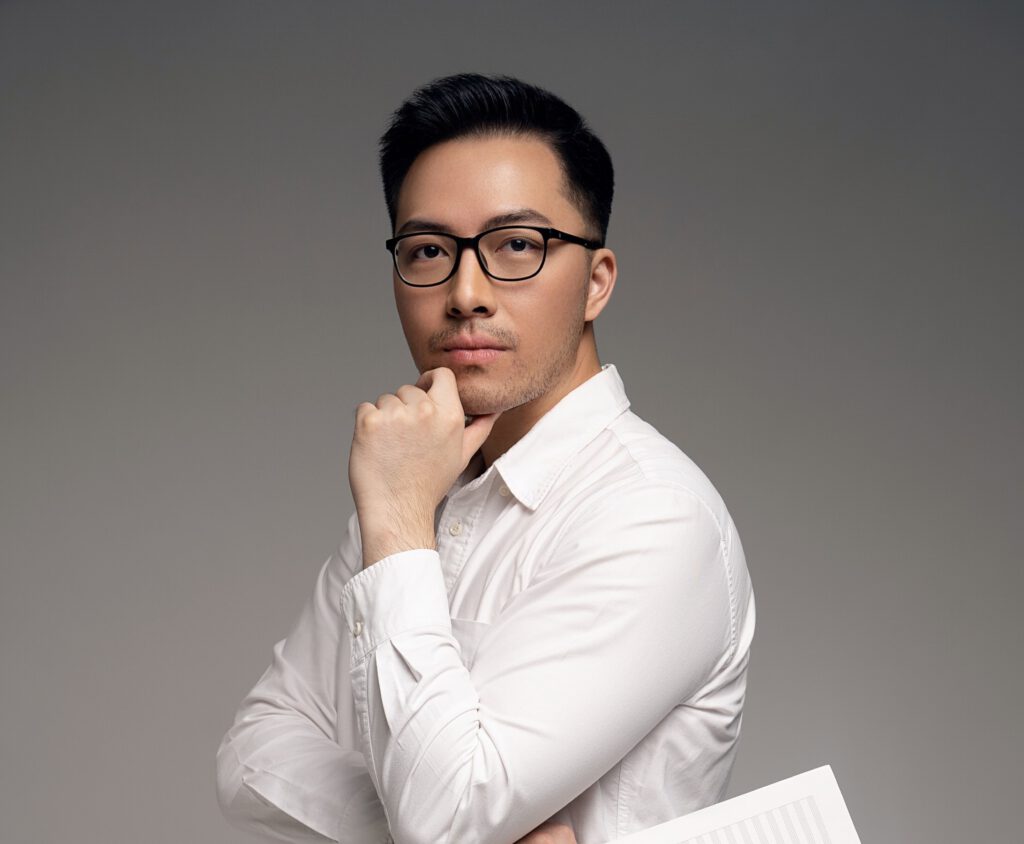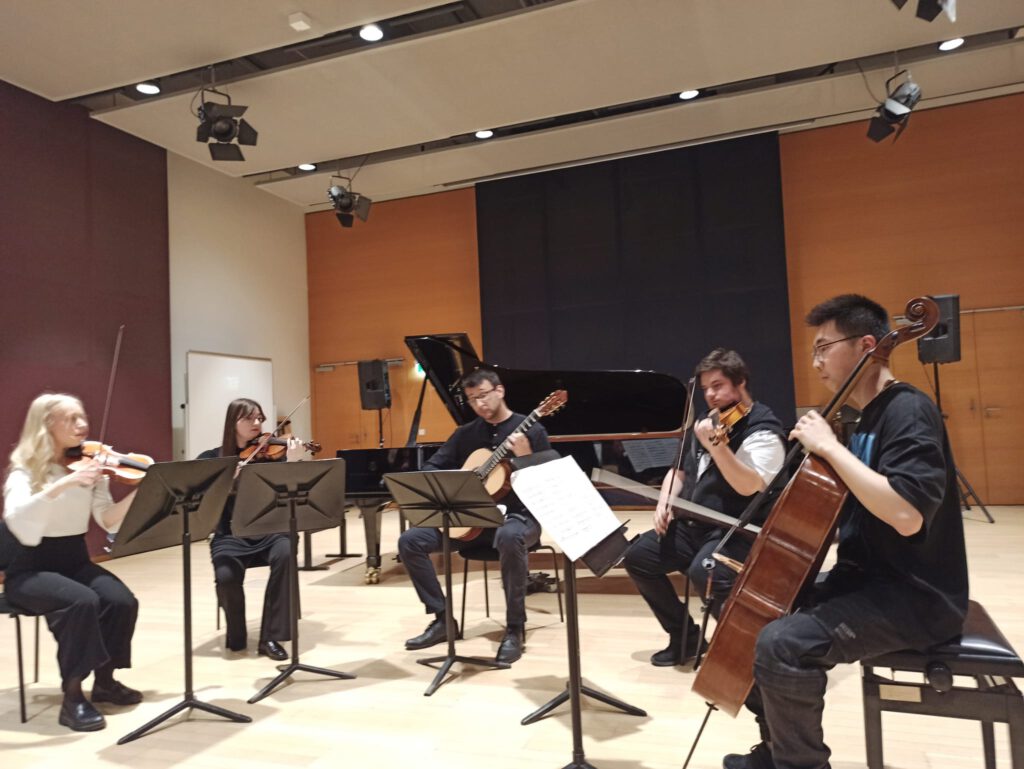“I feel that I am not alone in this uphill battle”
Global Conservatoire student Laura Helene Hansen on the course “Music and Racism”
Laura Helene Hansen is working on her master’s degree in vocal studies at the Royal Danish Academy of Music in Copenhagen and will join the Opera Academy of the Royal Theatre in Copenhagen. Laura took part in the Global Conservatoire course “Music and Racism,” taught by mdw faculty member Marco Kölbl in summer semester 2022. The course explores the relations between music and racism, addressing structures in higher music education and questioning racialised expectations in music performance. Students learn to reflect on their future professions from these points of views and how to develop anti-racist and anti-discriminatory strategies. Laura told the International Blog how she experienced the class.
Why did you decide to take part in the course “Music and Racism” offered by the Global Conservatoire?
I’ve been singing for seven years and I am loving it. A lot of my work is politically minded, especially when it comes to anti-racist strategies. Parts of the stories in operas are nowadays perceived as problematic. As singers we are storytellers of those stories told by white men written in certain periods of history. The question is, how can we enjoy this beautiful music and these stories and at the same time handle the problematic content of most opera stories.
What do you think are the benefits for students of the Global Conservatoire?
Students get presented a greater force of abilities and ways of living. We get a broader picture of classical music environments and can enlarge our horizons. That’s a great benefit, especially when it comes to jobs. We also talked after our course about what could be enhanced among us students. I think students should have more teamwork and talk more with each other, not only listen.
How did you handle the course?
We had online live lessons and it was so nice to talk with other like-minded anti-racist musicians. This was the biggest goal for me to feel that I am not alone in this “uphill battle”. In the asynchronized lessons I enjoyed the freedom of learning when I wanted to. I am a night owl, which means my brain functions best in the evening. We all would have loved to have more synchronized lessons. There was a lot of material our teacher provided us with, so it would have been great to have more time to talk about it, because we put a lot of time and effort into learning these new things. The class is over now, but we got an extra lesson with a guest lecturer, who talks about blacktivism and anti-racism strategies in opera.
What did you learn in the course on a personal level?
It was important to be challenged in my own views. We were mostly white people in class, which was in a way sad, but it was also nice to feel that we want to do something without being “white saviours”. I felt very seen and heard in expressing my opinions and got very motivated to continue my work. We agreed on the idea that a course teaching knowledge about racism and anti-racism strategies should be mandatory in curricula of music conservatories and universities, because there are still a lot of colleagues who don’t deal with these questions at all. I met many people who are scared of acknowledging that they contribute to some extent to the patriarchal and racist environment in classical music. In class we discussed how to explain to others the importance of anti-racism strategies without shaming or instructing them. I guess it is important to be very nice, although it challenges my patience if my peers don’t respond well to my anti-racism strategies, because often they would be scared of not getting jobs if they criticised racist content of operas.
How was your debate about students’ own experiences with racism? How did you discuss the role of racism in operas?
Students in our class from China and Hong Kong experienced stereotypes about Asian musicians plenty of times. A friend of mine from the RDAM experienced this too. Someone said something racist to her in front of me and I was the only one who reacted to it. Afterwards I realised that she has to fight it but I have to make myself visible as an ally.
Generally, I think I had to do a lot of academic research about racism, because I owe it to my colleagues and to opera. I really want to be an opera singer and produce operas, but I don’t want to ignore the problematic parts in operas. An example would be Puccini’s “Madame Butterfly”: even if cultural appreciation is taken into account, e.g. by casting Japanese singers for the Japanese roles, the story is still about Japanese culture told by an Italian composer. So, it will always be a compromise. I think and study a lot about how these questions can be tackled so that everybody feels seen and heard and can be content.
All in all, I think that operas are a great platform to discuss difficult topics. Opera singers produce these unusual sounds and sing about abstract worlds which helps to address compromising questions. I would never censor operas, but if I were to correct racist parts in an opera, I would explain what I corrected and why I corrected it. Otherwise, we don’t learn anything from the past and just forget about it.
Are you interested in the Global Conservatoire?
Find information about the programme of courses and registration
Article about the Global Conservatoire in the mdw-magazine

